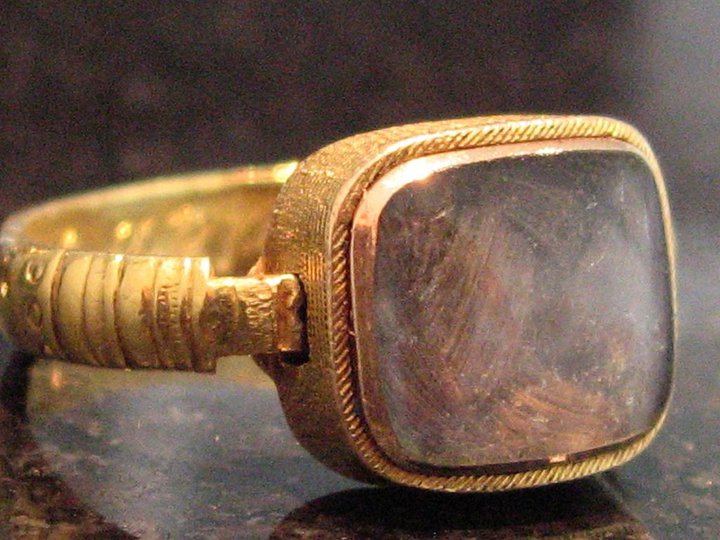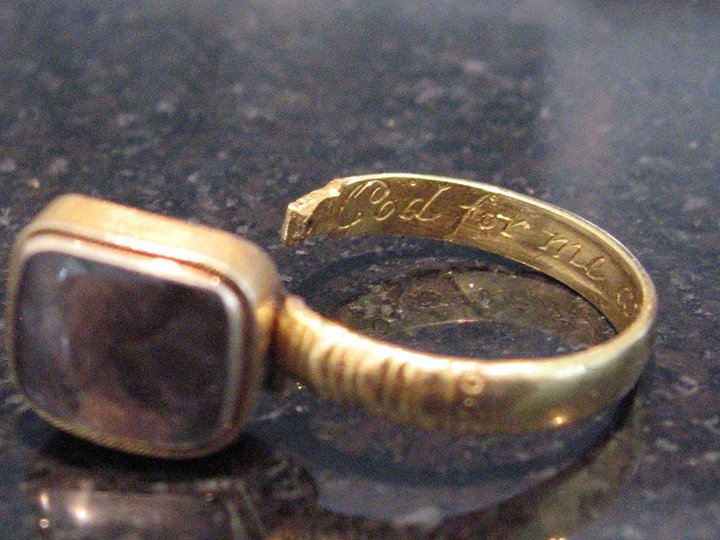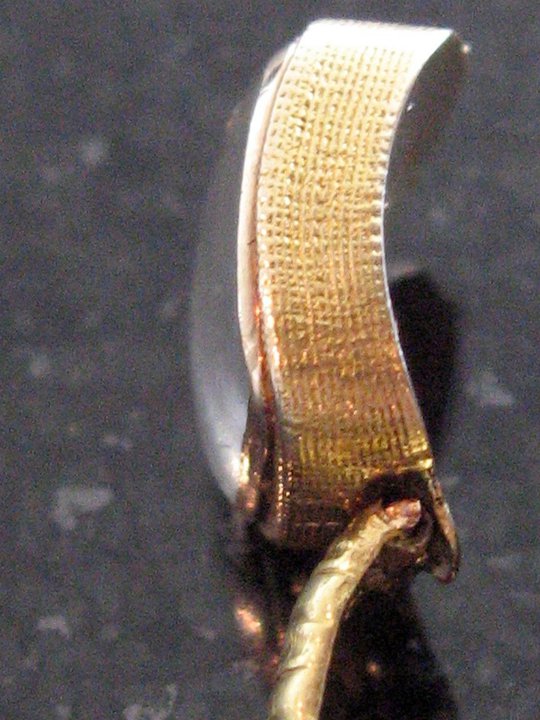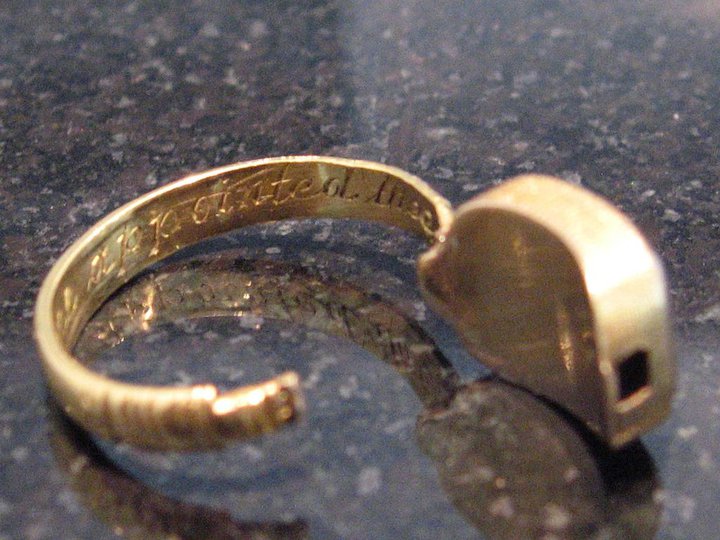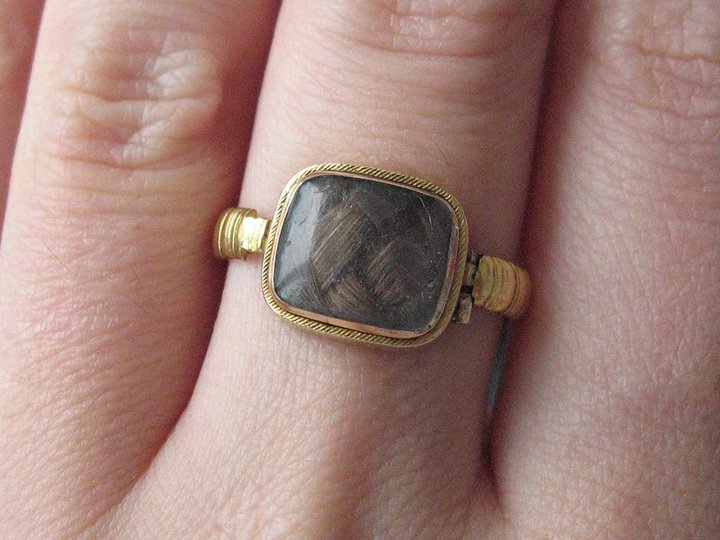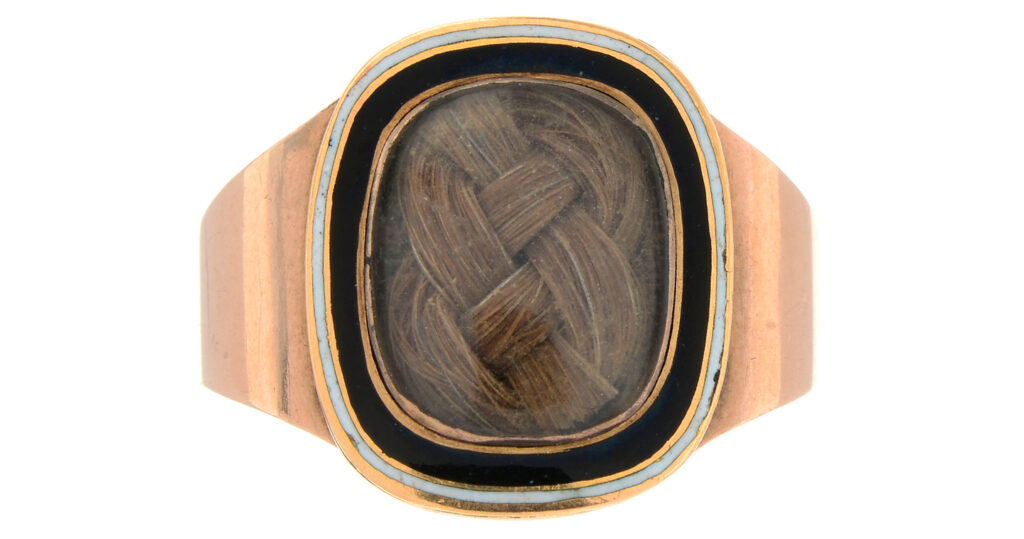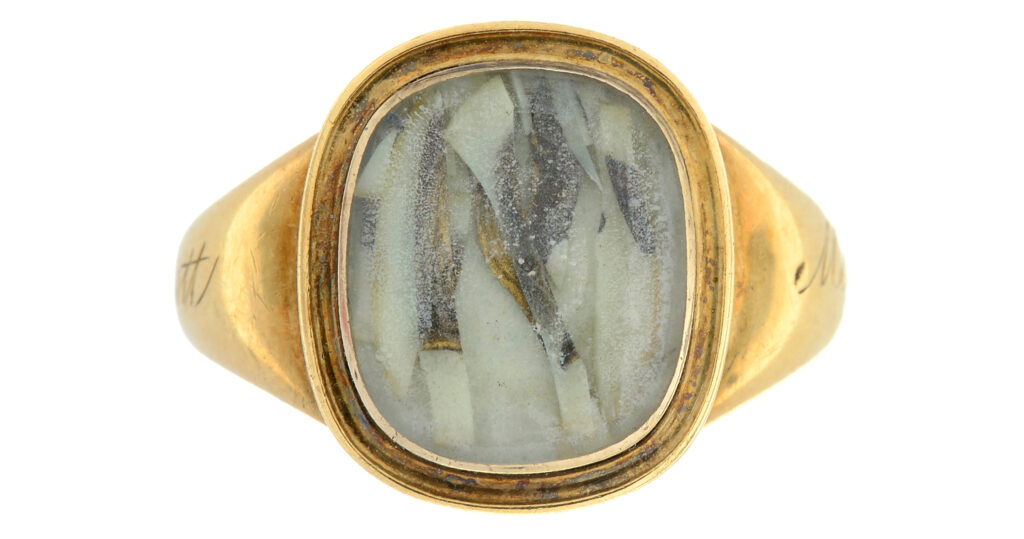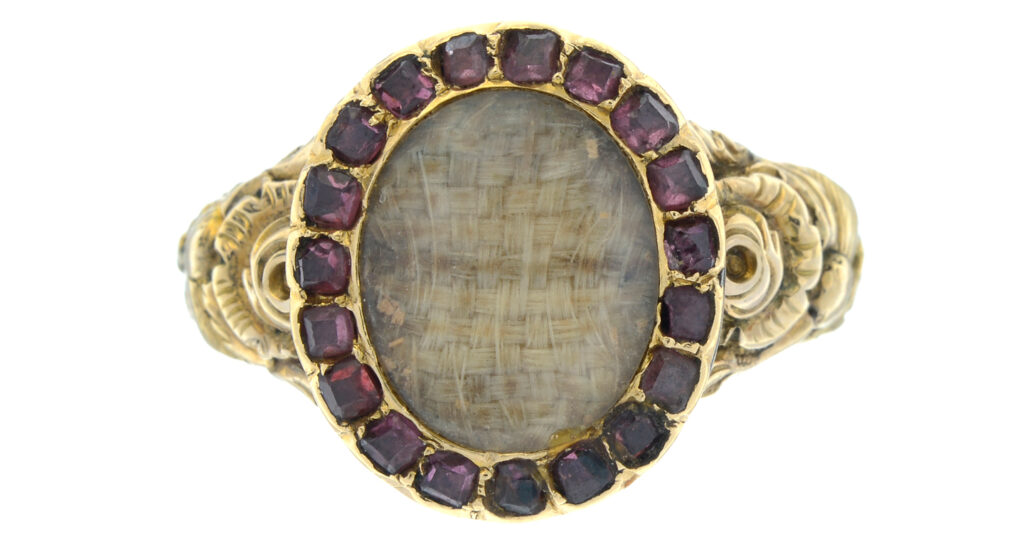Understanding a Hinged / Locket Sentimental Ring with Hair
Been somewhat of an odd sort myself, it’s when I find the oddities and individuals in sentimental and mourning jewellery design that I get somewhat excited.
Often, it is the oddity that turns into a new and popular movement in mourning and sentimental jewellery, such as how was a popular art integrated into these fashionable tokens of affection that could be displayed on the person or otherwise, how did a method of construction develop from an original idea into something that was adapted? From the collection of Marielle Soni, we have this very unusual locket ring. And what do I mean by locket ring, dear reader? Well, no, it’s not that the hair memento compartment is hinged, but the entire band is hinged and locks into the bezel.
Firstly we must look at the gold content of the ring, which tests to 18ct, on top, we have the latticed hairwork under glass and the shape is rectangular. From the look of the hinge and how it recesses into the bezel, one must consider that the ring was an original, contemporary creation, but we’ll get to that later. Inside the band, we have the sentiment ‘God for me appointed thee.’ Outside the band, there is a somewhat worn design with three lines followed by three circular shapes.
Starting with the bezel, the contour of its underside conforms with the shape of the finger. One thing that would be considered when looking at a piece so unusual is that it may be a marriage of styles. Often, ribbon slides, brooches, pins and bracelet clasps were reappropriated to become rings or other forms of jewellery, this is quite common and there is a remarkable amount of them surviving today. These marriages have no set date, one must consider when the change may have occurred. A 16th or 17th century piece may have been adapted during the 19th century (early 19th century conversions are quite popular), however, in this piece, the bezel conforms and shows the mechanical recess of the hinge. Note how the mechanism splays out from the bezel itself to the undercarriage of the hinge, creating a ring that wouldn’t pinch the skin when clasped. The designer understood form and function by looking at this.
Next are the designs on the bezel, note the high relief of its construction and the etched lines that flow with its contour. This is a method reminiscent of the emerging geometric line-work of c.1800 through the Regency Period which complemented the bold form-factors of Neoclassical jewels. Often, there’s a clear distinction between the navette and oval shapes used for housing ivory to the rectangular, square and even diamond shapes with the hair memento placed on top.
This ring falls into this category and along with various other examples of experimental jewellery designs of the time. Also, the high relief of the bezel is considered to be a good method to house both the hair and the hinge in construction, which doesn’t make for high practicality when wearing, but there’s a definite experimental leaning with getting this style right.
The symbolism and motifs on the band are also unusual. They appear to be earlier, commissioned specifically or simply flourishes of the designer of the time. It is because they simply don’t correlate with contemporary jewellery and popular styles that one can ascertain this. There is a definite hint of naivety in the design, but with the wear, it makes it harder to consider. Putting emphasis on the meaning of the design is completely subjective, however, there may be the influence of ‘eternity’ within, but the unbroken circles.
What we can understand is that the ring is sentimental in intent and the anachronistic posy dedication ‘God for me appointed thee’ is a clear indicator of this. Indeed, the nature of the posy was that its intent was private and many were constructed under personal commission by various socio-economic methods. Many range from the poorer end of the scale to the very high end, but that underlines that they were indeed created for the purpose of being a direct love token, rather than a piece chosen from a catalogue post-mortem as mourning jewels often here. Does this piece conform to that, or is it a certain regional style? Is it a marriage or simply experimentation over a period where some of the most elaborate jewellery design experiments were undertaken? Why wasn’t the style adapted? The elaborate construction, the ease of how it may break, difficulty sizing and the general discomfort wearing may have played a part in that, but all we can do right now is wonder.
Despite what we may think of the piece today, someone wore this on their finger at a certain time and felt the love for someone through it and what could be more beautiful than that? Enjoy the images, because I know I am!




